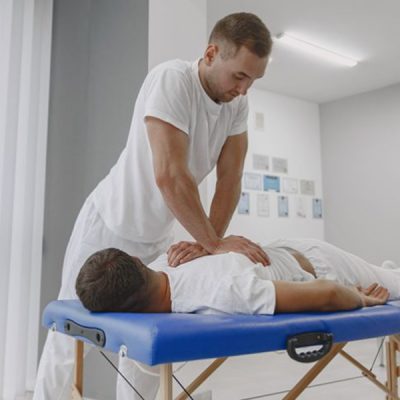In today’s fast-paced environment, it’s easy to brush off aches and pains as temporary or something that can be managed with rest. However, ignoring these signs may lead to more serious health issues down the road. Knowing when to seek home physiotherapy in Singapore can help you recover more effectively, manage chronic conditions, and prevent injuries from worsening.
Signs You Shouldn’t Ignore
Physiotherapy is not limited to those recovering from surgery or major injuries. Many people in Singapore visit physiotherapists for everyday discomforts that interfere with their work or lifestyle. One of the earliest signs that you may need professional intervention is persistent pain that does not improve with rest. Whether it’s in your lower back, neck, shoulders, or joints, recurring discomfort should not be dismissed.
Another reason to consider physiotherapy is when pain restricts your movement. If you’re having difficulty walking, bending, or lifting, a physiotherapist can help identify the root of the problem and guide you through exercises that restore your mobility. This is particularly helpful for office workers who may develop posture-related issues over time.
When Recovery Takes Too Long
Minor injuries like sprains, strains, or muscle pulls usually heal on their own within a few days or weeks. However, if recovery is taking longer than expected or if the pain keeps coming back, it could indicate an underlying issue that needs to be addressed. Delayed healing may be due to muscle imbalances or poor biomechanics, which a qualified therapist can evaluate and correct.
Opting for physiotherapy in Singapore can significantly speed up your recovery. Whether it’s sports-related or due to daily physical stress, a customised treatment plan can target problem areas, reduce inflammation, and improve tissue healing through manual therapy and strengthening exercises.
Preventing Further Injury
One of the most overlooked benefits of physiotherapy is injury prevention. If you’ve recently recovered from an injury or have a condition that puts you at risk of recurring issues, physiotherapy can help build strength and stability. This proactive approach is commonly used by athletes and fitness enthusiasts, but it’s equally beneficial for seniors and people with sedentary lifestyles.
Your physiotherapist will assess your movement patterns and posture, and offer tailored guidance on how to avoid future injuries. This might include recommendations on stretching routines, proper lifting techniques, or workspace ergonomics.
Managing Chronic Conditions
Physiotherapy plays a major role in managing long-term health conditions such as arthritis, Parkinson’s disease, stroke, and osteoporosis. These conditions often involve progressive physical decline, making it crucial to maintain strength, balance, and coordination.
Through a consistent rehabilitation plan, patients can improve their daily function and reduce reliance on medication or invasive treatments. In cases where mobility is severely affected, many families now consider home physiotherapy session packages as a more convenient and effective option, especially for elderly patients who may struggle with transportation or prefer personalised care in their environment.
Post-Surgery Rehabilitation
Recovering from surgeries like joint replacements, spinal procedures, or ligament repairs often involves a structured physiotherapy programme. Without it, there’s a risk of poor healing, scar tissue build-up, or reduced range of motion. Rehabilitation ensures that patients regain their strength safely and at the right pace, guided by professionals who monitor progress and make adjustments as needed.
While hospitals typically provide initial guidance, continued support through outpatient or physiotherapy in Singapore clinics ensures better long-term outcomes. For patients who prefer to avoid the hassle of travelling during recovery, in-home sessions provide the same expertise in a more comfortable setting.
Physiotherapy for Everyday Life
Physiotherapy isn’t only for injury or illness. Even individuals with no major physical complaints may benefit from seeing a physiotherapist to enhance their physical performance, correct posture, and increase general mobility. For example, pregnant women often experience back pain or pelvic discomfort that can be addressed through targeted physiotherapy exercises.
Likewise, people transitioning into a more active lifestyle can benefit from an initial assessment to ensure they are exercising safely. It’s all about promoting long-term wellness through movement and function.
Conclusion
Physiotherapy is a powerful tool not just for recovery but for maintaining an active and pain-free lifestyle. Whether you’re managing chronic illness, recovering from surgery, or trying to prevent future injuries, timely intervention can make a world of difference. If you’re uncertain whether to seek help, a consultation with a licensed provider can give you clarity and direction.
To explore your options for home physiotherapy in Singapore, contact The Home Physio today and take the first step towards better health and mobility.






